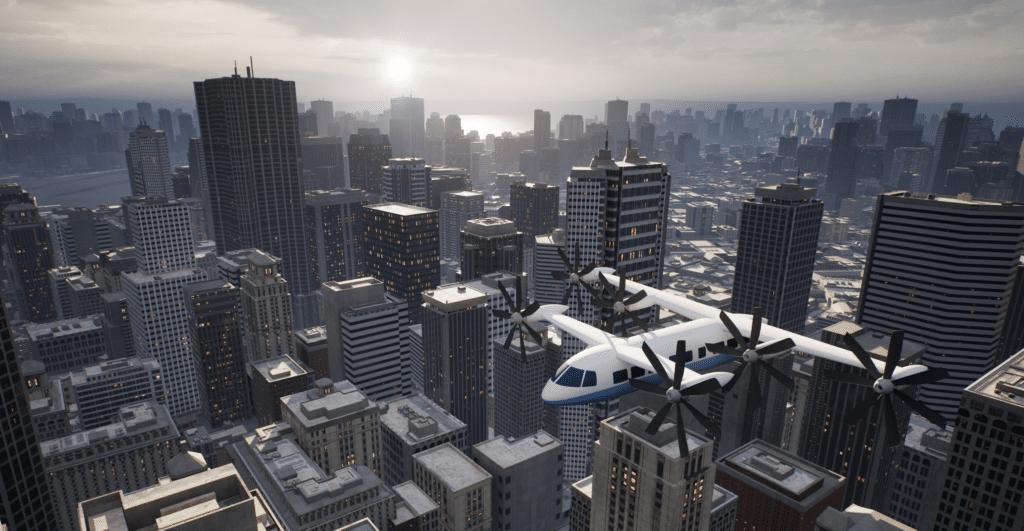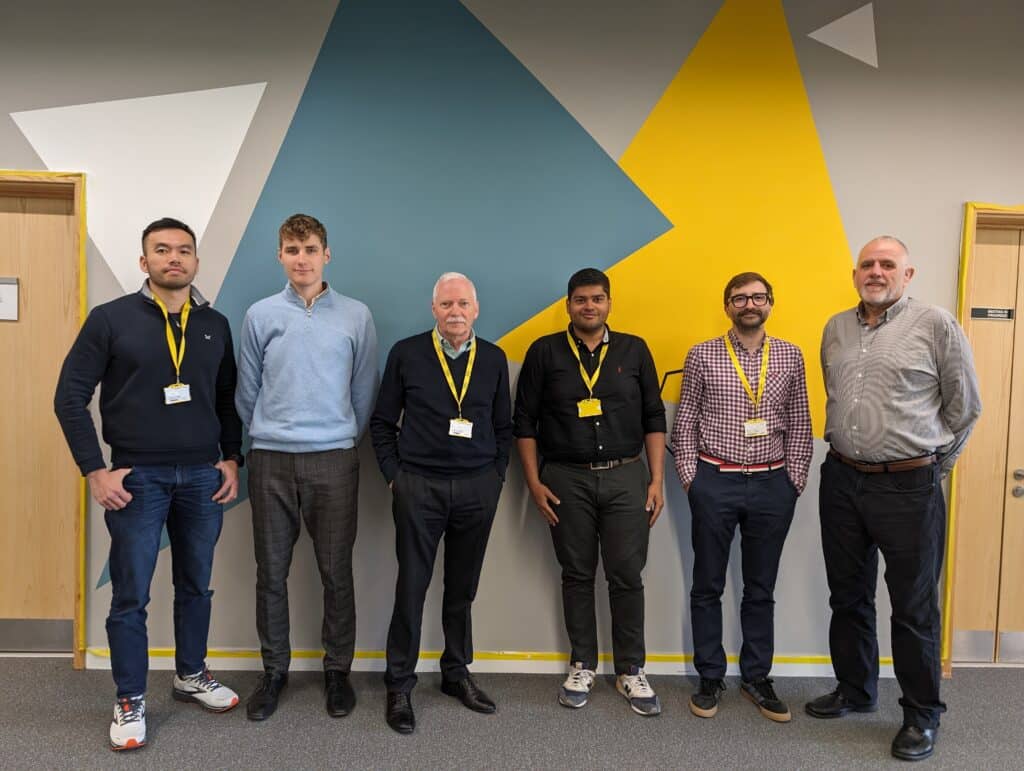When founders Furqan and Malcolm Foster conducted feasibility studies for electric aircraft whilst working at GKN Aerospace, they couldn’t have predicted it would lead to their own startup.
Malcolm and Furqan are experts in the aircraft industry who met at GKN. Furqan was working as a Technical Authority on electric aircraft while Malcolm was the Director of Special Projects.
Their path to Sora Aviation began when working on a new project looking into bus sized electric Vertical Takeoff and Landing aircraft (eVTOL).

Electric aircraft are here to stay
“Roland Berger predicted that there would be 160,000 air taxis in service by 2050,” says Malcolm.
“Uber popularized the idea of four passenger electric aircraft for urban commutes,” adds Furqan. “And market data shows that most of the demand will be for airport shuttles to/from city centers.”
Parking at airports is limited and expensive, and traffic congestion is heavy, making quick and efficient transportation to airports highly desirable. “People are willing to pay for a faster trip to the airport, even if they wouldn’t for other short trips,” Furqan notes.
Considering these factors, Furqan and Malcolm wondered why limit the capacity to just four people. “The cost of small eVTOL trips will be lower than helicopters, but still expensive for regular use. We envisioned a high-capacity EVTOL – a vehicle closer to the size of a bus with more affordable ticket prices.”
A larger “flying bus” would reduce passenger costs, decrease the number of trips, simplify air traffic management, and reduce noise pollution. These shuttles could be boarded at city centres from local vertiports.
“This idea is very scalable”, explains Furqan, “so we were able to convince GKN to research it and secured grants to research the techno-economic feasibility of eVTOL bus networks.”
Going it alone – Sora Aviation
As a supplier to aircraft companies, the concept did not fit GKN’s business model, so Furqan and Malcolm left to establish Sora Aviation. The team has expanded from two to six members in just three months backed by private angel investors funding the preliminary design.
“Others working in this space are focused on 1-6 passengers, but our design, the S-1, is unique because we’re looking at carrying up to 30 passengers,” says Malcolm. “We anticipate being in commercial service by 2031.”
After considering locations globally, the team moved to Future Space in April 2024, identifying Bristol as an ideal base due to its rich aviation heritage.
“It’s a great place to access talent,” says Furqan. “We’ve already recruited a UWE Bristol graduate as a Design Engineer. Future Space offers excellent business support, advice on grant funding and growth, R&D opportunities with the university, and abundant networking.”
In the month they have been at Future Space, Sora Aviation has already expanded into a larger office. Definitely one to watch as we follow the journey to a future of flying airport shuttles.

